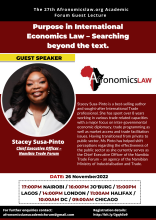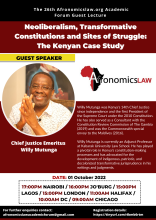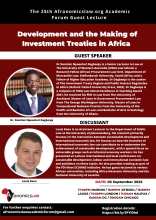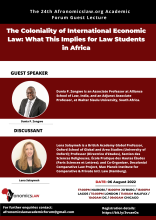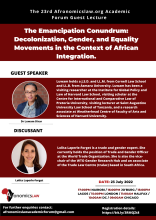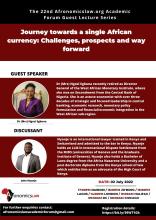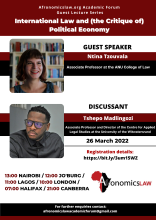Academic Forum
The Academic Forum is an inclusive and accessible forum that brings together undergraduate and graduate students as well as early career researchers from across the world interested in international economic law issues as they relate to Africa and the Global South. Its goals are to encourage and build core research skills in teaching, research, theory, methods and writing; developing content for Afronomicslaw.org and where possible to encourage authors to submit to the African Journal of International Economic Law; holding workshops and masterclasses on core research skills in teaching, research, theory, methods and writing; and organizing annual poster/essay competitions on international economic law issues. View the current Academic Forum Leadership here.
The 26th Afronomicslaw.org Academic Forum Guest Lecture: Neoliberalism, Transformative Constitutions and Sites of Struggle: The Kenyan Case Study
25th Academic Forum Guest Lecture: Development and the Making of Investment Treaties in Africa
Title: Development and the Making of Investment Treaties in Africa
